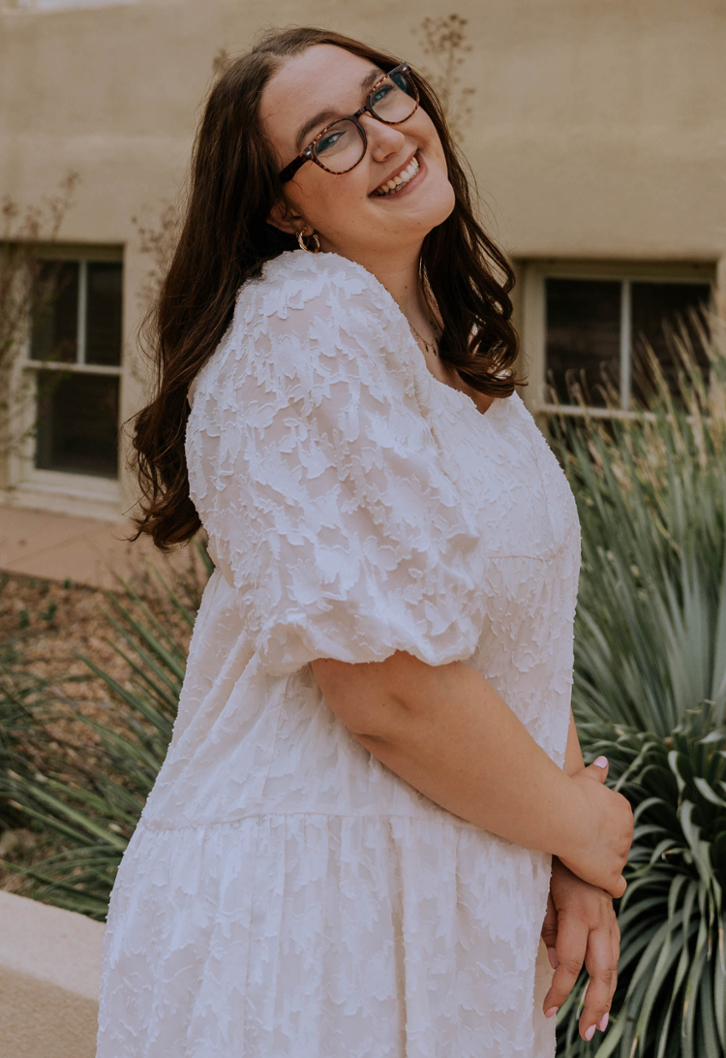LGS Student Spotlight | Katie James
By Kia Lisby

First-year Laney Graduate School Neuroscience PhD student Katie James once envisioned a career in music before losing her hearing at age 17. After a second reconstructive surgery to her left middle ear, James never fully regained her hearing. As someone who is not deaf, but hard of hearing, this experience changed James' life and outlook.
"When I lost my hearing, I had to think of other skills I might be good at and other things I cared about," says James.
Through her surgical and recovery process, James became more interested in neuropsychology. She wanted her disability to make more sense to her, knowing how she lost her hearing and what it meant. These answers helped James' hearing impairment become a gradual acceptance for her.
"[Losing my hearing] was emotionally taxing and just so frustrating because I grew up being able to hear my surroundings fully. Now, it’s a part of my identity that I love and embrace. It made me more empathetic and conscious of what invisible struggles other people may be going through," says James.
Before her enrollment at Emory, James attended the University of New Mexico, where she obtained two undergraduate degrees — a bachelor's in psychology and a bachelor's in biology.
She is now using her experience in both fields to pursue her interest in the changes in the brain that lead to behavioral and cognitive deficits in neurodegenerative diseases like Alzheimer's and Parkinson's.
Emory has a large neuroscience community and is one of the largest programs in the university's Graduate Division of Biological and Biomedical Sciences (GDBBS).
Being in one of the top programs in the nation, James believes Emory is the perfect place for her to study questions she has related to all things neuroscience.
Despite James' hearing impairment, she still manages to keep a positive attitude and mindset through her circumstances.
"It took learning sign language to help me feel less frustrated. I realized my body works in other ways, and that I can communicate with my hands and even lip-read. Sign language helped me reconnect with my body and get it in my head that things would be okay."
As a first-year Neuroscience PhD student, James is taking neuroanatomy and systems neuroscience courses where she learns about sensory systems like touch, vision, hearing, and different brain structures, what they mean, what they do, and how they are related.
At the end of her PhD journey in 2029, James says her hope is to "do good science I find meaningful, that I can see leading to some translational outcome-even if it's not my work, but something I contribute to.”
James also wants to leave a legacy of being helpful and a shoulder to lean on for any support. Whether needing a ride to the airport or someone to cry to, Katie James strives to be there for others during their invisible struggles.